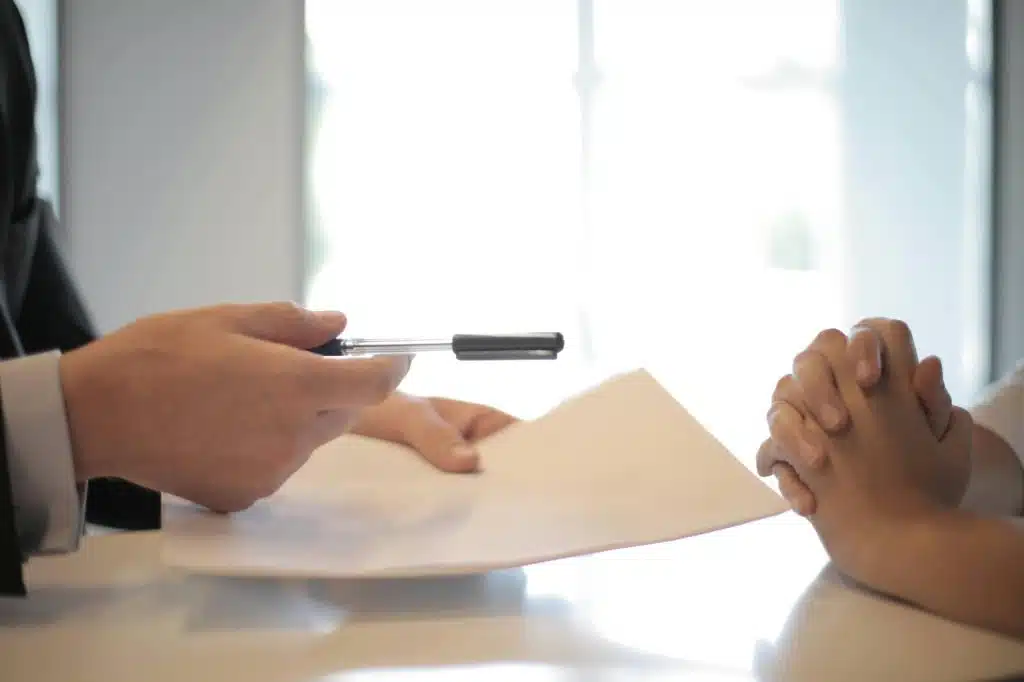Introduction
While a rare common law action, inducing a party to breach a contract is a serious legal issue that can lead to significant consequences and liability.
This actionable tort under Australian common law occurs when a third party intentionally encourages or persuades someone to breach their contractual obligations and this breach results in loss or damage to the other contracting party. Claims for this tort can include damages.
Of note is that this action encompasses both intentional and inadvertent interferences with contractual relationships and this conduct can have serious legal and commercial consequences.
This article explores the tort by examining the recent case of Sealed Air Australia Pty Ltd v Aus-Lid Enterprises Pty Ltd [2020] FCA 29.

Sealed Air Australia Pty Ltd v Aus-Lid Enterprises Pty Ltd [2020] FCA 29
This case involved allegations of a party inducing another to breach an existing contract. In this case, the relevant contract was a patent licence agreement.
Aus-Lid Enterprises was the registered patent owner of a yoghurt lid with a built in spoon. Aus-Lid Operations was the exclusive licensee of the patent. In January 2011, Aus-Lid Operations contracted with Sealed Air Australia, granting them an irrevocable and exclusive sublicence of the patent in Australia and New Zealand. As a result, Sealed Air Australia was the exclusive supplier of the lid to Chobani until mid-2014.
However, from mid-2014, Visy Packaging Pty Ltd began supplying the patented lids to Chobani based on an agreement with Aus-Lid Operations. As a result, Sealed Air Australia’s supply to Chobani decreased and by March 2015, Visy had replaced Sealed Air Australia as Chobani’s sole supplier.
Sealed Air Australia pursued Visy for damages, alleging that Visy had induced Aus-Lid Operations to breach their patent licence agreement with Sealed Air Australia.
Elements of the Tort
In this case, the Federal Court confirmed that to establish a breach of contract, the following must be proven:
- There must be a contract between the plaintiff (Sealed Air Australia) and a third party (Aus-Lid Operations);
- The defendant (Visy) knew of the contract and that if the third party (Aus-Lid Operations) acted or failed to act in a certain way, they would breach the contract;
- The defendant (Visy) intended to induce or procure the third party (Aus-Lid Operations) to breach the contract; and
- The breach caused loss or damage to the plaintiff (Sealed Air Australia).
Sealed Air Australia alleged that:
- Visy knew of the irrevocable and exclusive patent licence;
- Visy knew that Aus-Lid Operations granting rights to Visy would result in a breach of the patent licence;
- Visy intended to induce the breach by offering and paying royalties; and
- Sealed Air Australia suffered loss and damage when it lost Chobani as a client.
The Court found that Visy was aware of the licence and that this knowledge was sufficient to establish intention. Even if Visy had been unaware of the licence, wilful blindness or reckless indifference is sufficient. In these circumstances, Visy had been recklessly indifferent as they relied solely on the representations from a director of Aus-Lid Operations without undertaking its own due diligence or conducting its own enquiries.

Defences
A key defence to this tort is demonstrating a reasonable, bona fide belief that the conduct was not an inducement to breach a contract. For example, this defence may apply where a defendant reasonably believes that the contract is no longer valid or enforceable.
In assessing this defence, a Court will consider whether a reasonable person in the defendant’s position would have held such a belief.
In this case, the Court rejected Visy’s defence, finding their reliance on representations made by the director of Aus-Lid Operations without conducting further investigations was insufficient.
Conclusion
The decision in Sealed Air Australia Pty Ltd v Aus-Lid Enterprises Pty Ltd [2020] FCA 29 highlights the risks of inducing a breach of contract and is a recent example of the tort being used to pursue another party.
Businesses must ensure that they undertake detailed due diligence and make reasonable enquiries before entering into transactions that could interfere with existing contractual relationships. Failure to do so can expose a party to liability, even if the interference was inadvertent or based on reckless indifference.
The information in this article is for general purposes only and you should obtain professional advice relevant to your specific circumstances.
Get in touch
If you or someone you know wants more information or needs help or advice in relation to a breach of contract where inducement may have been involved, please contact us.
Related Resources
Contracts
Relying on ChatGPT For Contracts: A Risky Legal Move
This article will explore the risks involved with having ChatGPT create contracts for you and why using a lawyer should be the preferred method.
Read moreContracts
Can I Terminate a Contract? Understanding Your Rights and Obligations
In this article, we’ll delve into key legal considerations you should make before terminating a contract, and reasons you might be able to terminate a contract.
Read more



